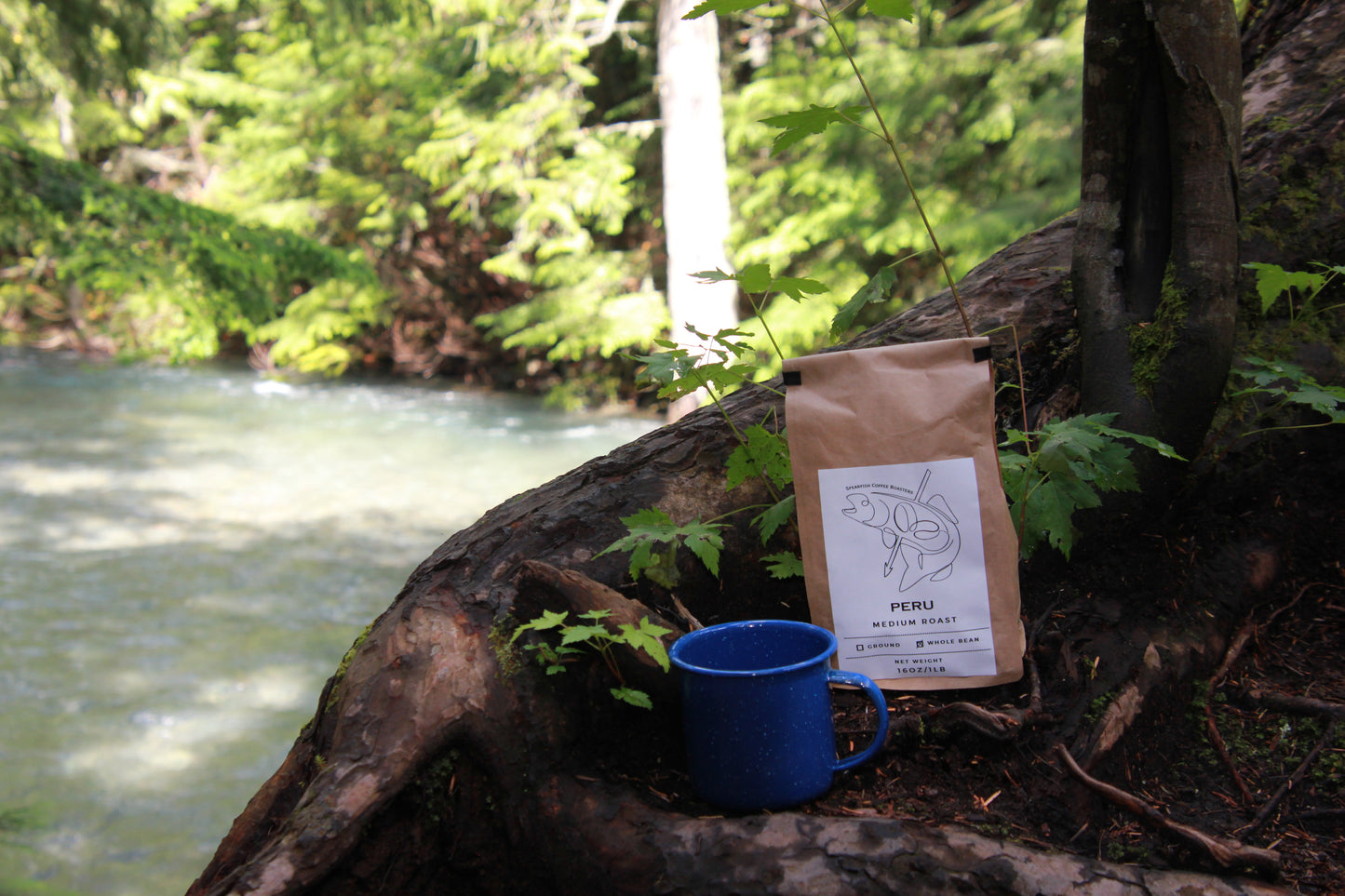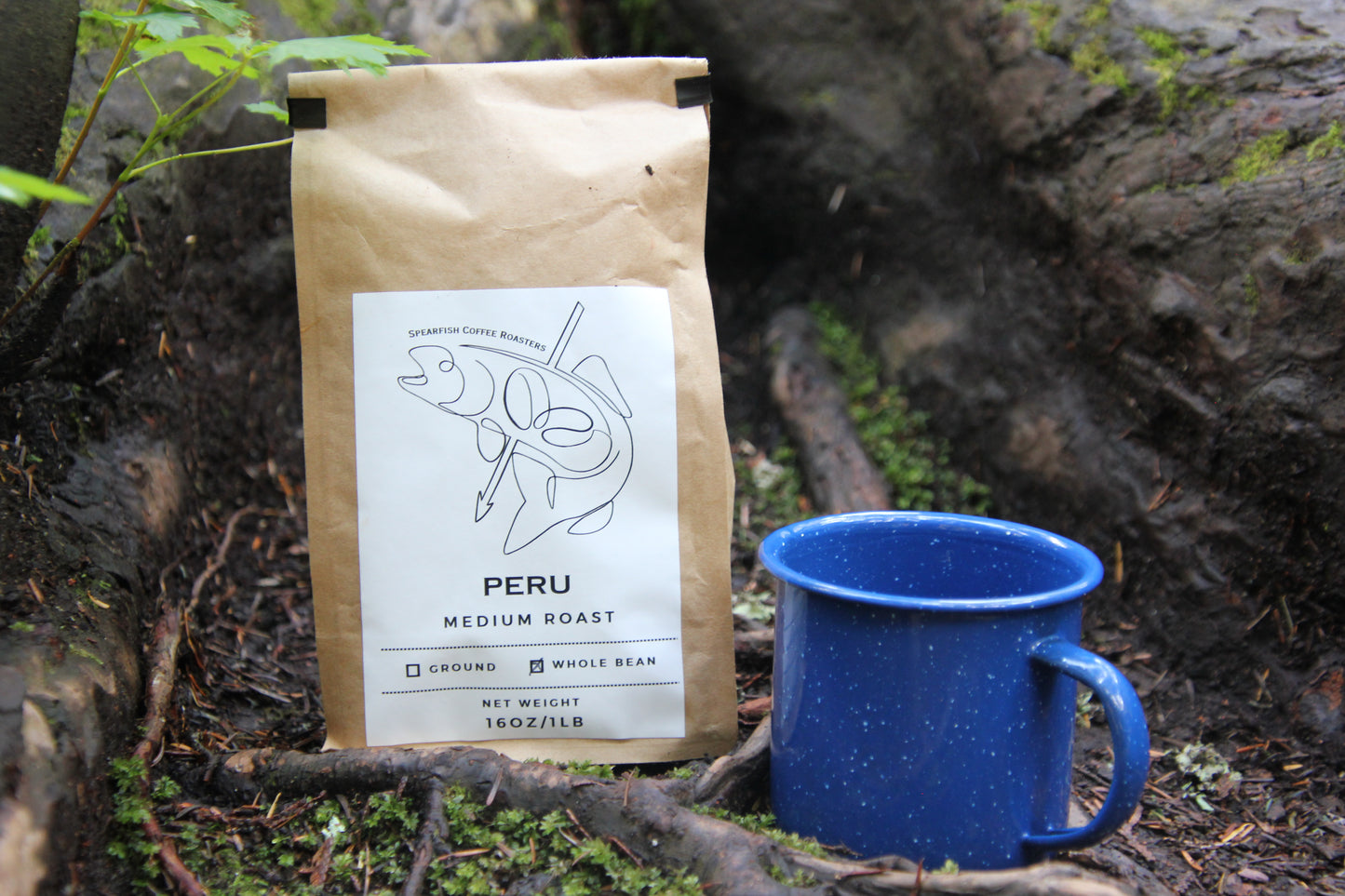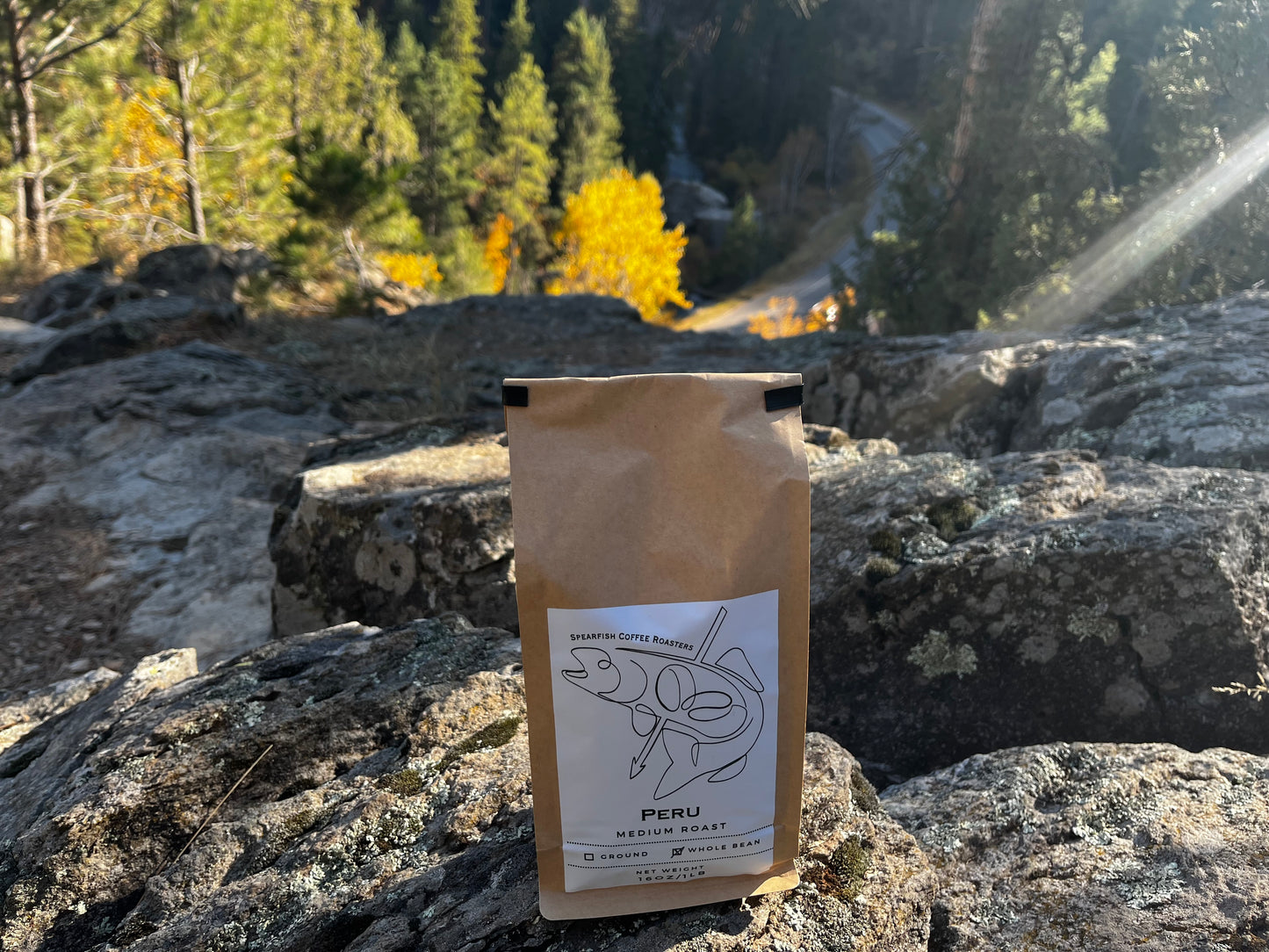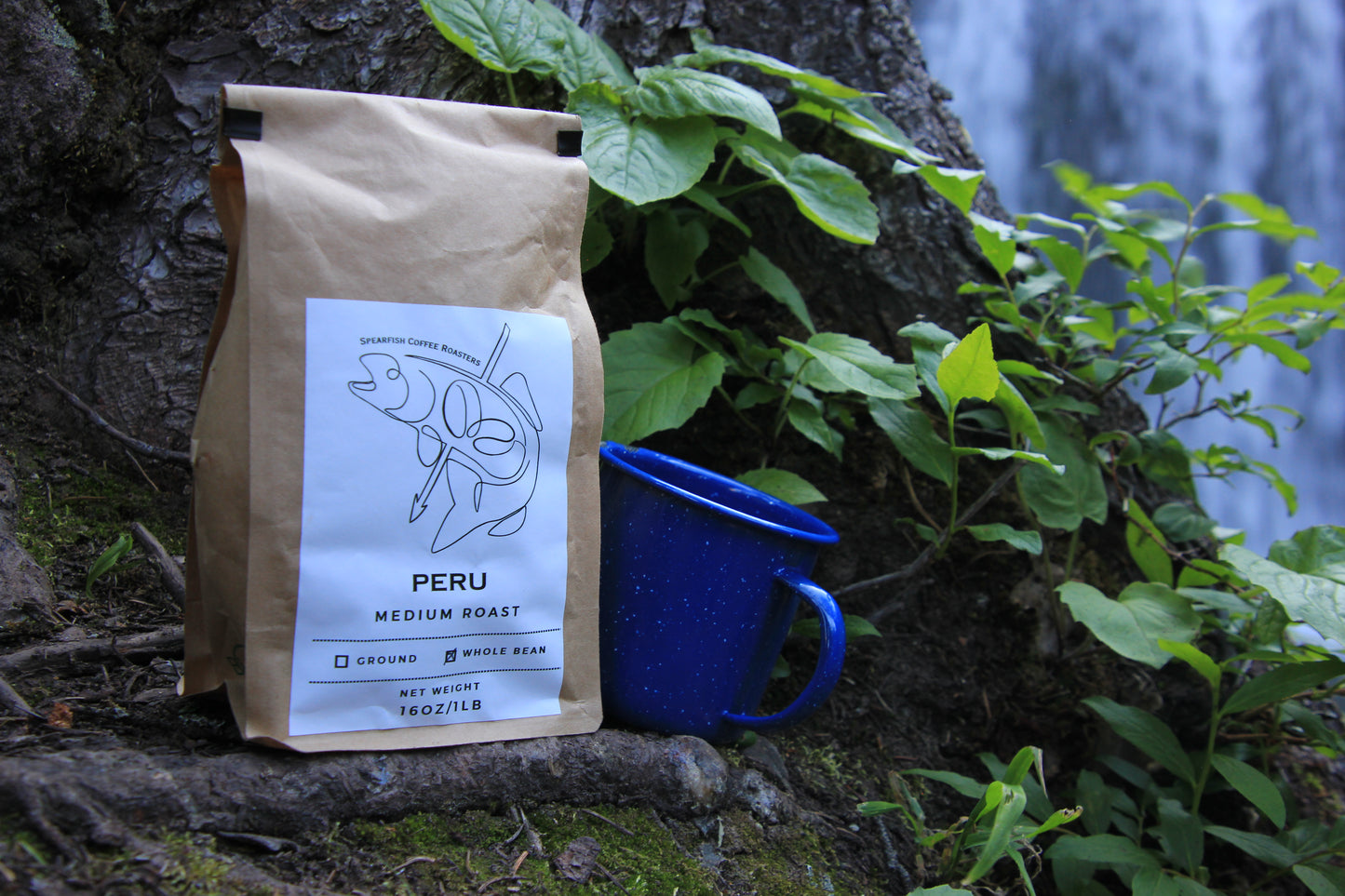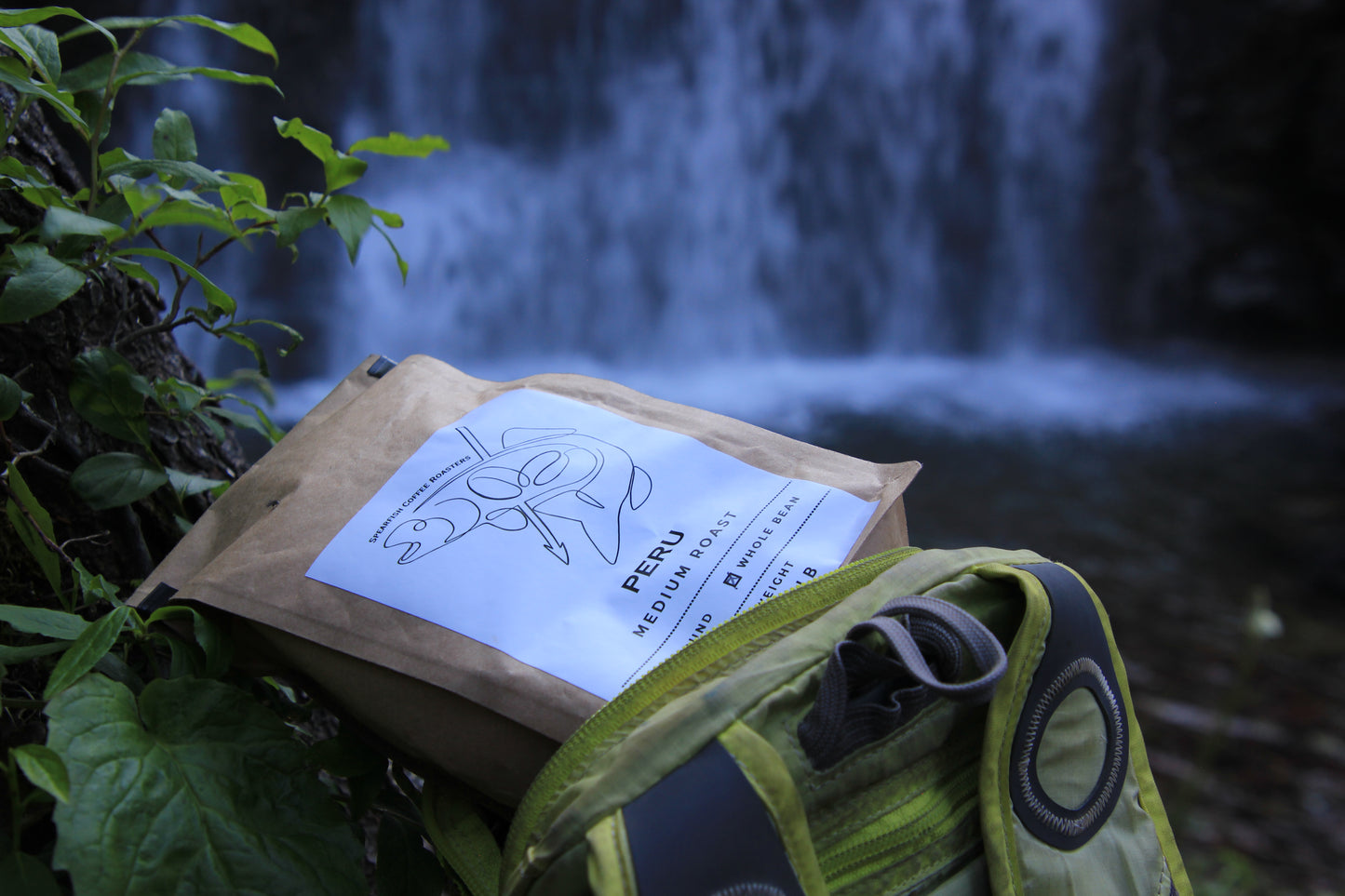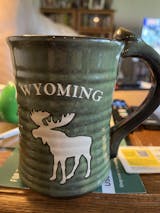Peru - Medium Roast
Peru - Medium Roast
Regular price
$10.00 USD
Regular price
Sale price
$10.00 USD
Shipping calculated at checkout.
Quantity
Couldn't load pickup availability
Peru - Medium Roast
This medium roast Peruvian coffee is quite delightful. Crafted with 100% organic beans, it boasts a bold flavor profile that's surprisingly light-bodied. Expect a smooth cup with a rich aroma, perfect for those who enjoy a complex yet approachable coffee experience.
Recommendation:
French press or pour-over might be ideal for highlighting the lighter body.
Process: Washed
Elevation: 1600-1900 MASL (Meters Above Sea Level)
Region: Cajamarca
Sold in Full 1 Pound, 2 Pound, and 5 Pound Bags
*Organic & Fair Trade
